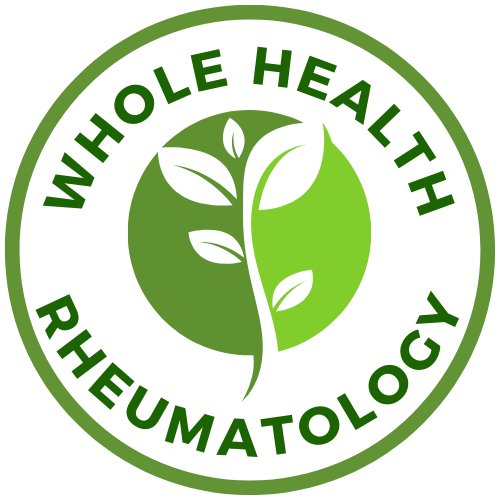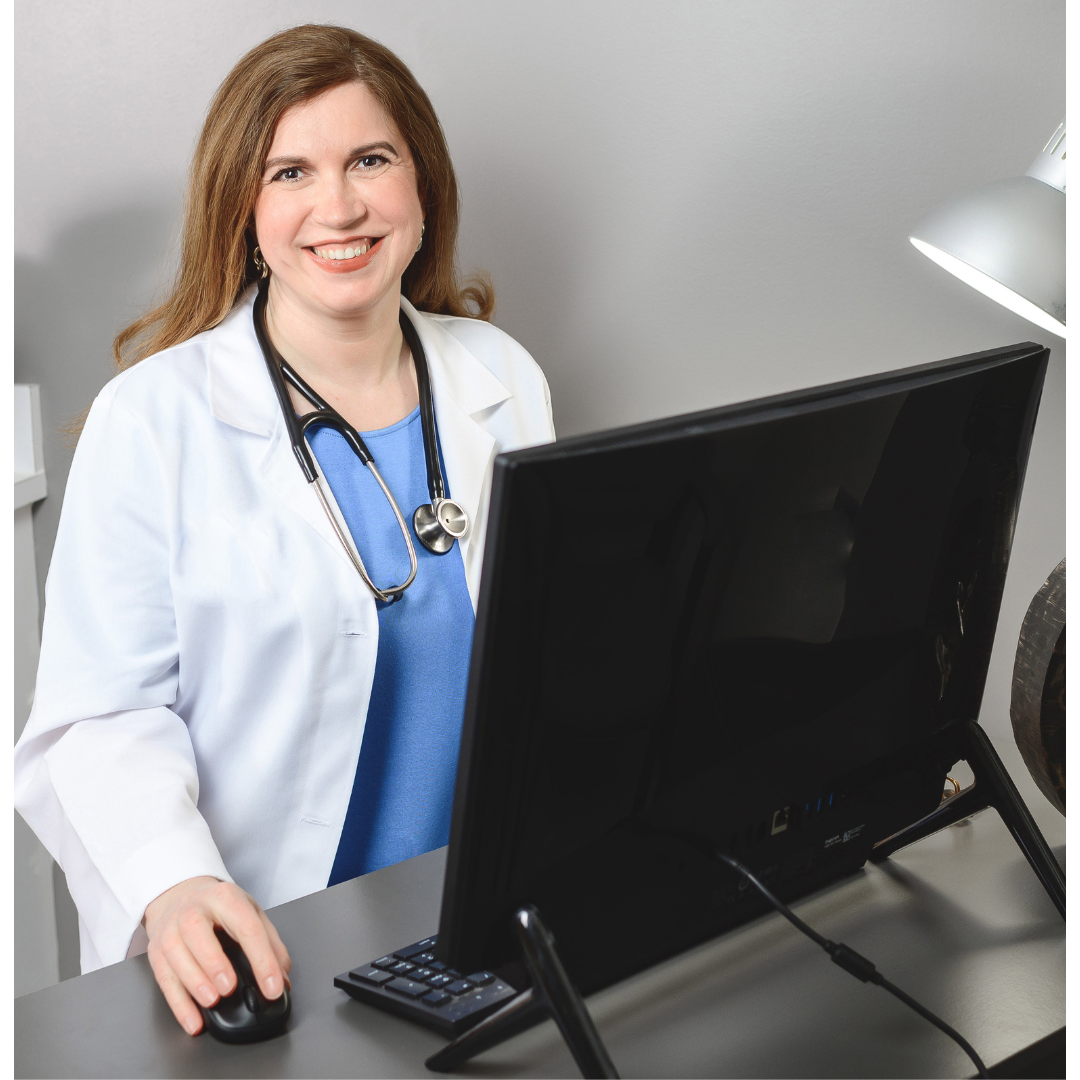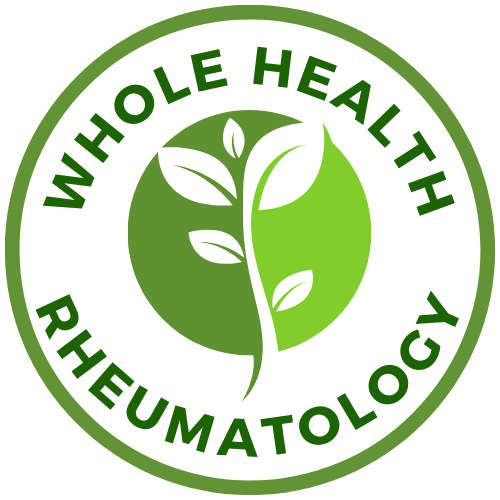New patients welcome -
no referral required
(ph ) 502-429-6049
Fax (844) 429-1600
Practice Address
Practice Email
IF YOU’RE HERE, YOU’RE DEALING WITH SYMPTOMS THAT ARE AFFECTING YOUR LIFE —
AND YOU STILL DON’T HAVE ANSWERS.
Most people who come to us are feeling:
Pain, swelling, or stiffness that keeps coming back
Fatigue that makes even simple tasks hard
"Normal labs" but very real symptoms
Worry that something serious is going on
Fear that no one will take them seriously
Stress from waiting months for a specialist
Confusion about what to do next
Your symptoms are real — and they deserve real attention.

NEW PATIENT EVALUATION $699
This first visit is where you finally get time, clarity, and direction.
Here's what it includes:
✓ A careful review of your medical history prior to your visit
✓ A 60–75 minute visit with Dr. Pinkston
✓ Time to talk through everything without being rushed
✓ Simple explanations you can understand
✓ A diagnosis or next-step plan
✓Options for lab testing if needed, including on-site lab for faster results & convenience
Our goal is for you to walk out feeling understood, supported, and finally have a plan for what’s going on.
WHAT WE TREAT:
(Rheumatoid Arthritis is the number one reason people come in.)
Dr Pinkston has expertise in:
Rheumatoid Arthritis (with or without positive labs)
Lupus and evaluation for +ANA
Autoimmune & Inflammatory Symptoms
hEDS, Hypermobility Spectrum Disorders, MCAS
Complex cases that need more time & attention
Symptoms other clinics haven't been able to figure out
We help you understand what’s driving your symptoms and what to do next.
WHY PATIENTS CHOOSE DR. PINKSTON:
(Mayo Clinic-trained rheumatologist is not the only reason!)
✓ Seen in 1 - 3 weeks… not 6 months
✓ Same or next-day visits for urgent flares (when available)
✓ No referral required
✓ Not feeling rushed - the longer visits that give you time to be heard, with a thorough physical exam
✓ A doctor who takes your symptoms seriously
✓ Whole-picture care: sleep, stress, hormones, gut, inflammation...
✓ Clear, simple explanations (no big medical words)
This is care that puts you first.
Your symptoms, your story, and your quality of life.

What you need to know about Dr. Olga Pinkston
Mayo Clinic–trained and board-certified in Rheumatology.
Patients-first. Straight talker.
She takes the time most patients have never been given.
She listens, explains things clearly, and helps you understand what’s happening in your body so you can finally move forward with confidence.
She started this practice so patients could get the answers and care they’ve been searching for — without long waits, rushed visits, or feeling dismissed.
You deserve answers — and you don’t have to wait months to get them.
Serving the Greater Louisville Region
Our Louisville, Kentucky office welcomes patients from Kentucky, Indiana, Tennessee, and Ohio for in-person appointments.
Kentucky residents can use telehealth for follow-up visits.
We're working toward licensure in IN, OH, and TN for expanded telehealth access.
Easy Parking
Free onsite parking—no hassle, no hunting for spots. Handicap parking available.
Lab Services Onsite
Get your lab work done right here during your visit for convenience and faster turnaround.

Olga Pinkston, MD, FACR, DipABLM
Board-certified Rheumatologist
-
University of Louisville Medical School
-
University of Louisville Internal Medicine Residency Program
-
Mayo Clinic Rheumatology Fellowship Program - Jacksonville, FL
-
Board Certified in Internal Medicine and Rheumatology
-
Board Certified in Lifestyle Medicine (The American Board of Lifestyle Medicine (ABLM))
-
Integrative Medicine Fellowship, Andrew Weil Center for Integrative Medicine, Class of 2025 - recipient of the prestigious Lovell-Jones Rheumatology Scholarship (awarded to one physician per year)
-
Host of the "Mind Your Fibro" podcast, the top-rated podcast on fibromyalgia
-
Certified in Pain Reprocessing Therapy (completed 2 trainings: one by Alan Gordon, LCSW and 2nd by Howard Schubiner, MD)
-
IFS (Internal Family Systems) informed practitioner
-
Additional training in Cognitive Behavioral Therapy (CBT) - for depression, anxiety and chronic pain
-
Certified Life Coach and Trauma Coach

Services & Pricing*
Simple, Transparent Pricing— Your Health is Worth the Investment
The below rates are updated & current as of 11/28/2025.
Expert Diagnostic Rheumatology Evaluation
$699
New patient evaluation
- in-depth medical records review
- 60-75 min visit with Dr. Pinkston
- additional tests as need for diagnosis/treatment - use your insurance or self-pay options (a 30-min follow-up visit to review this additional testing if ordered during your initial visit is included in the new evaluation price)
- integrative & lifestyle medicine recommendations
- Superbill is provided - submit for out-of-network reimbursement - HSA/ FSA Eligible Medical services ***
Additional Services:
- Complex case review: Internal medicine consults, rheumatology second opinions, and integrative or lifestyle medicine evaluations. Limited availability based on case complexity and fit. Contact our office for details. Sometimes having dedicated time with a physician who listens to your whole story makes all the difference.
Follow-up
$250 (30 min) -$350 (45 min)
per visit
- no additional co-pays
- same/next day urgent visits
- 30-45 min follow-up visits, longer as needed
- televisits (KY only at this time for established patients only)
- Regular Follow-Up (30 min) - $250
- Extended Follow-Up (45 min) $350
- NOTE: Unless specifically discussed during a prior visit, I do not make changes to medications without an appointment.
- Superbill is provided - submit for out-of-network reimbursement - HSA/ FSA Eligible Medical services ***
*** Can I pay for my care using my Health Spending Account (HSA), Health Reimbursement Account (HRA) or Flexible Spending Account (FSA)?
We believe the services we offer satisfy the IRS guidelines to be qualified medical expenses eligible for payment with funds from your HSA HRA and/or FSA account. The services are medically necessary to evaluate & treat medical conditions seen in our practice and we are happy to provide a letter of medical necessity, or a superbill upon your request. However, for liability purposes, we do not make any assurances or representations regarding tax questions and recommend that you consult with your employer, HSA/HRA administrator, or qualified tax advisor for the appropriate guidance. We do not submit any claims for you nor can guarantee reimbursement.
Conditions we treat
Model of Care
Whole Health Rheumatology
What services do you provide for your patients
Do you see patients from other states
The Benefits of Rheumatology Direct Care
Why Choose Whole Health Rheumatology?
What happens when a rheumatologist actually has time to connect the dots.

Consciously Independent - Built for Clinical Freedom
At Whole Health Rheumatology, care is designed around what you need—not what insurance dictates. We are not concierge practice—just comprehensive rheumatology with the time and attention complex conditions require.
By design, we are a smaller practice. A smaller patient panel means more access to your doctor. We're able to see patients same-day or next-day for urgent flare treatments, offer direct access between visits, and provide consultations that last as long as necessary—not as long as a billing code allows. Your care evolves as your health journey does.
About insurance: We are out of network with all insurance plans. You can still use insurance for labs, imaging, medications, and referrals—we handle the orders & required authorizations. Insurance already controls plenty: which tests they'll cover, which medications are on formulary, what requires prior approval. What they can't control is my time with you and the full range of treatments I can offer.
This independence allows thorough evaluations, integrative and lifestyle medicine approaches, addressing what's driving your inflammation, and comprehensive treatment plans—not just prescriptions from an approved list before rushing to the next patient.
Why not participate with insurance? The administrative burden—billing staff, paperwork, authorization battles—forces practices to pack schedules just to cover overhead. The result is rushed visits and cookie-cutter care driven by reimbursement, not your needs.
Here, you get rheumatology care that's truly personalized, genuinely unhurried, and uncompromised.

Patient-Focused Visits
By intentionally limiting our practice size, we create time for what matters: extended time with your physician to address your whole health picture, time to incorporate integrative and lifestyle medicine, and personalized care that evolves with you—ensuring you leave with clarity, not more questions.

Clinical Expertise
Drawing on Mayo Clinic training, board certifications in Rheumatology, Internal Medicine, and Lifestyle Medicine, plus Integrative fellowship training, Dr. Pinkston offers expert-level precision and evidence-based care—with the direct care independence to make decisions based solely on what's best for you.

True Partnership
This is collaborative medicine: I bring the clinical expertise to guide your care, but I explain my evaluation and findings, we discuss your options openly, and we build a treatment plan together—one that makes sense and feels right. Because the best outcomes happen when you truly understand your condition and are invested in your healing.

Insurance-free Care
Freed from copays and insurance constraints, we devote our full attention to accurate diagnosis, evidence-based interventions, and treatments aimed at achieving durable remission.
Use insurance for labs, imaging & medications—not to control your doctor's medical decisions. Transparent prices without surprise bills.
Integrative Rheumatology: Beyond Medications
A Whole Health Approach to Your Care

Autoimmune, inflammatory, and connective tissue conditions require more than prescriptions for lasting improvement.
What drives inflammation:
- Chronic stress
- Poor sleep quality
- Gut dysfunction
- Nutritional deficiencies & obesity
- Hormonal imbalances (Yes, we do help you balance your hormones if needed!)
Integrative rheumatology combines both:
- Traditional medications & evidence-based treatments
- Lifestyle factors that fuel disease activity
The result? Patients who optimize sleep, nutrition, stress management, and gut health alongside medical treatment often achieve better disease control—and in some cases, remission.
Remission isn't guaranteed, but treating multiple drivers of inflammation gives your body the best chance for healing.
We're committed to more than managing disease—our focus is helping you reach sustained remission if possible, minimize future flares, restore your quality of life, and partner with you throughout your health journey.
WHOLE HEALTH RHEUMATOLOGY = INTEGRATIVE RHEUMATOLOGY
Comprehensive evaluation & treatment of arthritis, autoimmune & rheumatologic conditions
Mayo Clinic trained & board-certified rheumatologist, Dr. Olga Pinkston diagnoses and treats autoimmune & inflammatory diseases affecting bones, muscles, joints, and skin, such as:
Rheumatoid Arthritis · Osteoarthritis · Gout · Systemic Lupus Erythematosus · Fibromyalgia · Ankylosing Spondylitis · Psoriatic Arthritis · Vasculitis · Sjögren’s · Scleroderma · Polymyalgia Rheumatica · Giant Cell Arteritis · Myositis (Polymyositis, Dermatomyositis) · Mixed Connective Tissue Disease · Behçet's Disease · other types of arthritis, as well Mast Cell Activation Syndrome (MCAS), POTS, Chronic Fatigue Syndrome (ME/CFS), Long COVID, CRPS, and IBS..
Dr. Pinkston also evaluates non-specific complaints, such as fatigue and joint pain, without a definitive diagnosis, with or without abnormal labs (+ANA, inflammatory markers, etc.), often not accepted by other rheumatology practices.
She also evaluates joint pain and musculoskeletal complaints associated with perimenopause & menopause, including standard hormone testing (if needed) and offers menopause hormone replacement therapy to patients.
Fellowship training at the Mayo Clinic, FL, equipped Dr. Pinkston to evaluate patients thoroughly, review prior records and workup, and provide, if possible, a diagnosis or guidance on what to do next.
SHOULD I BE SCREENED FOR AN AUTOIMMUNE DISORDER?
The screening for rheumatologic and autoimmune disorders should be considered for several groups of people. If you have some of the symptoms, abnormal labs or risk factors, consider screening. Because Whole Health Rheumatology is a new practice and is not yet at capacity, no referral is required.
- SYMPTOMS - symptoms can be episodic (come and go) or gradually develop over months or years.
- Persistent joint pain, swelling, or stiffness, especially in the morning.
- Unexplained fatigue: autoimmune inflammation is notorious for causing exhaustion.
- Skin rashes (particularly on the face, sun exposed areas, psoriasis, nail changes, between buttocks or in your underarm/axilla, skin tightness). Some rashes may be particularly concerning if there is muscle weakness in the upper arms/upper legs, or rashes coinciding with shortness of breath.
- Muscle weakness or pain
- Pain all over – may feel like there is pain in the joints, muscles, “even my hair hurts”
- Recurring fevers
- Hair loss
- Raynaud's phenomenon (fingers/toes turning white/blue in cold)
- Brain fog
- Hair loss (especially patchy, bold spots)
- PEOPLE WITH UNEXPLAINED SYMPTOMS OR SYMPTOMS AFFECTING MULTIPLE ORGAN SYSTEMS:
- Persistent inflammation
- Unexplained kidney problems
- Lung issues
- Heart complications
- Neurological symptoms
- Irritable bowel syndrome (IBS) or Small intestinal bacterial overgrowth (SIBO)
- Rashes (hives, urticaria, flushing)
- Dry mouth, burning tongue

Understanding Hypermobile Ehlers-Danlos Syndrome: A Rheumatologist's Perspective
Hypermobile Ehlers-Danlos syndrome (hEDS) and Hypermobility Spectrum Disorder (HSD) are among the most overlooked connective tissue disorders in modern medicine.

As a rheumatologist, I regularly meet patients who have spent years—sometimes decades—searching for answers to a puzzling array of symptoms. My goal is to help you understand these conditions and recognize when to seek specialized care.
What Are hEDS and HSD?
Think of connective tissue as your body's scaffolding—it's everywhere, providing structure and support to joints, organs, blood vessels, and skin. In hEDS and HSD, genetic variations affect how this tissue behaves, making it more elastic and less stable than it should be.
Both conditions feature generalized joint hypermobility—joints that bend and stretch far beyond the normal range. The key difference is that hEDS meets stricter diagnostic criteria, while HSD describes patients with significant hypermobility symptoms who fall just short of the full hEDS diagnosis.
Here's what many physicians don't realize: HSD and hEDS often require the same management approach. The label matters less than recognizing and treating the symptoms.
Why These Conditions Hide in Plain Sight
hEDS and HSD are masters of disguise:
-
No single telltale symptom exists. Symptoms overlap with dozens of other diagnoses, making pattern recognition difficult.
-
Symptoms fluctuate unpredictably. You might feel terrible one day and relatively normal the next.
-
Severity changes over time. Mild childhood "clumsiness" can evolve into debilitating symptoms during puberty or young adulthood.
This combination often leads to patients being dismissed as anxious, deconditioned, or told they're imagining their symptoms.
The Cost of Delayed Diagnosis
Professor Rodney Grahame, a leading expert on hypermobility disorders, estimates that approximately 95% of cases presenting to clinics are missed. When patients do get diagnosed, they've typically been searching for answers for 14 to 28 years.
The gender disparity is striking: women wait an average of 16 years for diagnosis, while men wait only 4 years—reflecting broader gender bias in healthcare.
What This Delay Costs
Those aren't just statistics. They represent:
-
Years of uncontrolled pain
-
Inappropriate psychiatric treatments for physiological problems
-
Preventable joint damage from misguided exercise recommendations
-
Psychological trauma from repeated dismissal and gaslighting by healthcare providers
-
Decreased quality of life when effective interventions exist
Current Diagnostic Criteria
It's outdated, but still used, but hopefully in 2026 we will get an update!
The 2017 International Consortium established criteria requiring three key elements:
1. Generalized Joint Hypermobility assessed through the Beighton scale—a simple, equipment-free test
2. Two of Three Additional Features:
-
Multiple signs of a broader connective tissue problem (from a specific list of 12 features)
-
At least one first-degree relative with hEDS
-
Chronic musculoskeletal issues like widespread pain or joint instability
3. Ruling Out Other Conditions, especially vascular EDS and other connective tissue disorders, such as rheumatology and autoimmune conditions - they can co-exist and confuse the symptoms!
Patients who have significant hypermobility and symptoms but don't meet all hEDS criteria receive an HSD diagnosis. Both deserve serious clinical attention and similar management strategies.
The Web of Related Conditions
hEDS and HSD rarely exist in isolation. Patients typically present with interconnected conditions that amplify each other:
#Musculoskeletal Issues
Chronic widespread pain, joints that partially dislocate (subluxations), TMJ dysfunction, and postural problems from poor proprioception—your body's sense of where it is in space.
#Autonomic Nervous System Dysfunction
Many patients develop POTS (postural orthostatic tachycardia syndrome), where heart rate spikes inappropriately when standing. This causes dizziness, presyncope, brain fog, and crushing fatigue. It's measurable and physiological—not anxiety.
#Gastrointestinal Complications
Slow gut motility, gastroparesis (delayed stomach emptying), severe bloating, and multiple food sensitivities—particularly to gluten and dairy.
#Immune System Overactivity & Histamine Issues
Mast cell disorders, such as Mast cell activation syndrome (MCAS) often present in patients with hypermobility. They can cause many symptoms, including allergy-like reactions, flushing, hives, and sometimes dangerous anaphylaxis to various triggers.
#Neurological Manifestations
Chronic migraines, small fiber neuropathy (burning or tingling sensations), and sometimes cervical spine instability with serious neurological symptoms.
#The Critical Point: These conditions interact. Dysautonomia worsens GI symptoms. Poor sleep exacerbates everything. MCAS triggers dysautonomia flares. Treating them in isolation often fails; addressing them together creates synergistic improvement.
Why Rheumatologists Are Key Players
Rheumatologists are uniquely positioned to recognize and coordinate care for hEDS and HSD:
-
We assess joint hypermobility routinely
-
We differentiate types of joint problems—inflammatory arthritis, autoimmune disease, or mechanical instability from hypermobility - there are many causes of joint pain and often can be present at the same time.
-
We think systemically about complex, multi-organ conditions and find solutions to treat them
-
We rule out conditions that mimic hEDS, like lupus and other autoimmune connective tissue diseases
The Musculoskeletal Syndrome
of Menopause
Understanding Your Body's Changes & How We Can Help
70% women experience musculoskeletal symptoms during menopause
25% will be significantly disabled by them
Most don't realize these symptoms are connected to hormonal changes

Common Symptoms:
- Joint pain or stiffness - especially hands, knees, shoulders
- Morning stiffness that improves with movement
- Frozen shoulder or difficulty raising arms
- Loss of muscle mass and strength despite staying active
- Poor balance or fear of falling
- Decreased bone density increasing fracture risk
- Generalized muscle aches without clear cause
- Loss of stamina and endurance
Why This Happens:
The decline in estrogen during menopause profoundly impacts your musculoskeletal system.
When estrogen levels drop:
- Inflammation increases causing joint pain
- Bone density drops 10% during perimenopause
- Muscle mass declines 0.6% per year
- Cartilage becomes fragile accelerating arthritis
- Muscle repair and growth become more difficult
OUR APPROACH COMBINES: HORMONES + LIFESTYLE
✓Bioidentical Hormone Therapy
FDA-approved hormones to address the root cause by slowing estrogen loss, preserving bone density, maintaining muscle mass, and reducing inflammation
✓Targeted Nutritional Optimization
Personalized nutrition plan and supplementation for bone & muscle health, and weight optimization (including brand GLP-1 medications if needed)
✓Resistance Training Protocols
Evidence-based exercise programs to build muscle mass, increase bone density, improve balance, and reduce fall risk
✓Mind-Body & Lifestyle Medicine
Stress reduction, sleep optimization, trauma-informed care, anti-inflammatory diet, movement integration, and strategies that address the whole person
✓Comprehensive Rheumatologic Evaluation
Accurate diagnosis to distinguish menopausal changes from other conditions (rheumatoid arthritis, polymyalgia rheumatica, fibromyalgia), early detection of bone loss, and personalized risk assessment
Pasha
emotional support & therapy-in-training dog
Pasha is a diminutive of Pavel, a Russian form of Paul. (The name sounds feminine but he is a boy!!)
The name means 'little, humble' in Russian.
He is four years old and about 30 pounds of pure love and affection.
Pasha is an Australian Labradoodle (a very hypoallergenic cross between the Poodle, Cocker Spaniel and Labrador Retriever), which is a very friendly, social breed that loves everyone.
He is sensitive and very in tune with his humans, whom he loves to be with! He does not do well if left alone for extended periods of time, so sometimes he comes to work with me.
Fun fact: Pasha is bilingual and understands both Russian & English. He listens to my daughter better than me, no matter what language!
Please let our staff know if you would prefer not to see, or be aware of his presence in the office.






